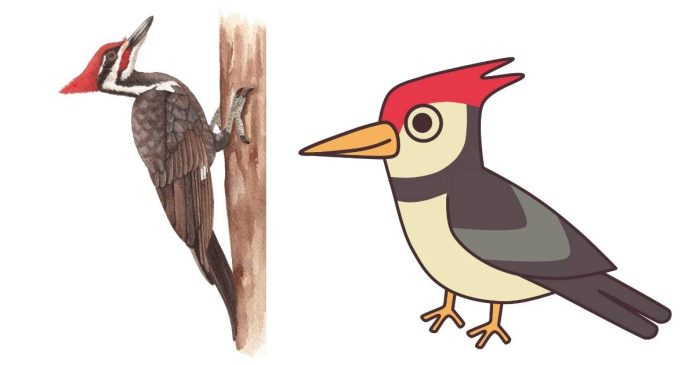Woodpeckers, like many wild birds, can technically be eaten, but they are not commonly consumed today for several reasons. Historically, some Indigenous peoples and early settlers in North America did hunt woodpeckers for food, as they were available in the wild. However, eating woodpeckers is not a widespread practice today for a few important reasons:
1. Taste and Texture
Woodpeckers are small, and their meat is lean and tough. The flavor may be gamey and unappealing to some people, particularly since woodpeckers primarily eat insects and sometimes sap. The texture is likely to be stringy and not as desirable as more commonly eaten game birds like quail, duck, or turkey.
2. Legal Protection
In many countries, including the United States, woodpeckers are protected by law under the Migratory Bird Treaty Act. This means it is illegal to hunt, capture, or kill woodpeckers without a special permit. The law helps conserve bird populations and protect species from overhunting. If you’re considering hunting or consuming wild birds, it’s important to understand and comply with the relevant laws.
3. Health and Safety Concerns
Woodpeckers, like many wild birds, can carry diseases or parasites, such as avian influenza or West Nile virus. The preparation of wild birds for consumption requires proper handling, cleaning, and cooking to ensure safety. If you’re not experienced with processing wild birds, there are risks involved.
4. Cultural Preferences
Woodpeckers are not a popular or traditional food source in most cultures. While some Indigenous groups did hunt them, they are not typically featured in modern cuisine, and there are many other wild birds and animals that are more commonly consumed.
Conclusion
While it is possible to eat a woodpecker, it is not recommended or common practice today. They are protected by law in many regions, and their meat is not known for being particularly appetizing or easy to prepare. If you’re interested in eating wild birds, there are other options, such as quail, grouse, or pheasant, that are more widely regarded as suitable for consumption. Always be sure to check local regulations before hunting or consuming wild animals.


